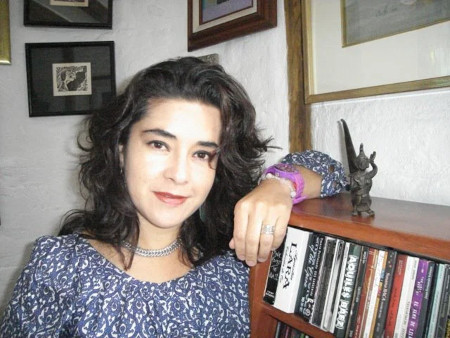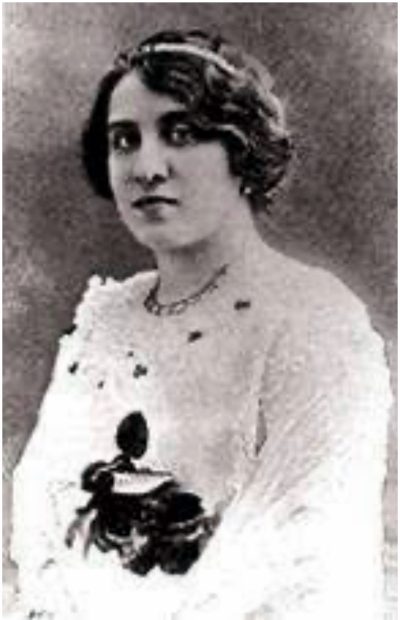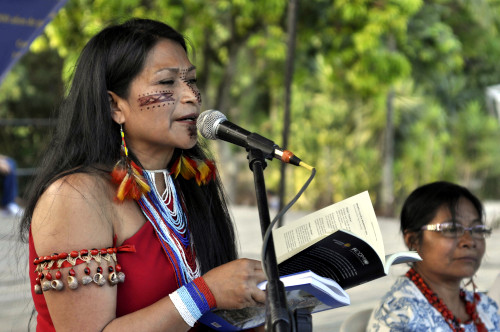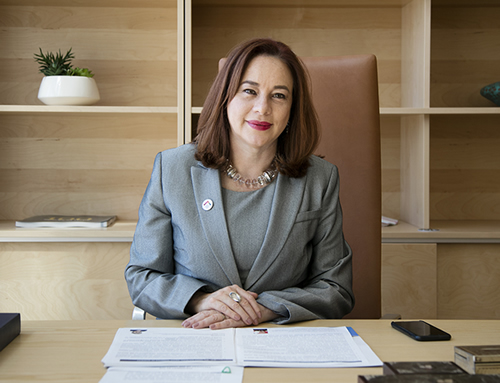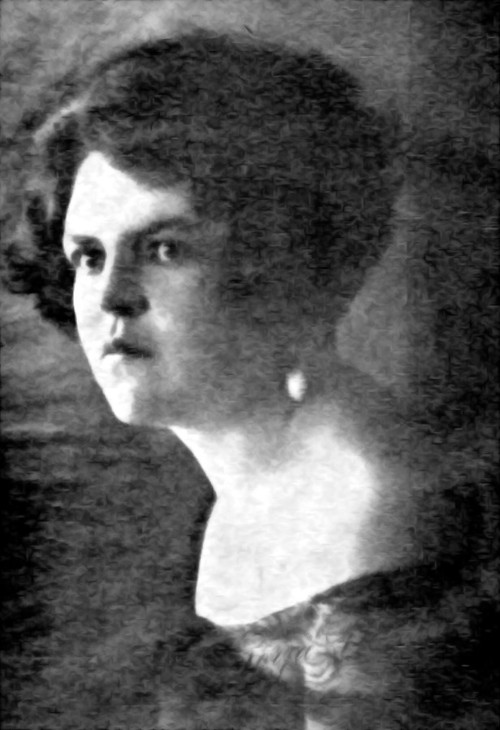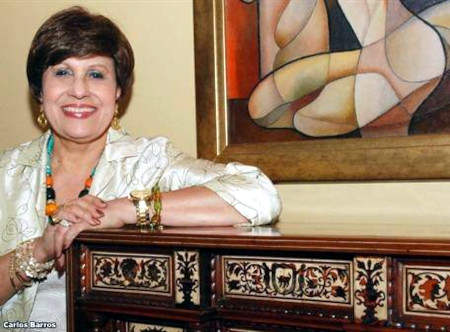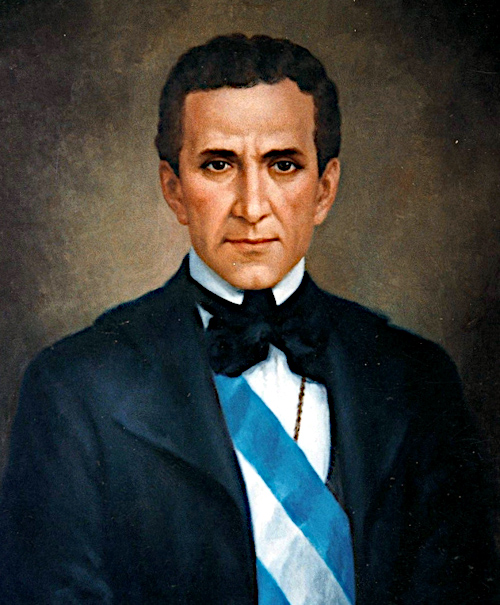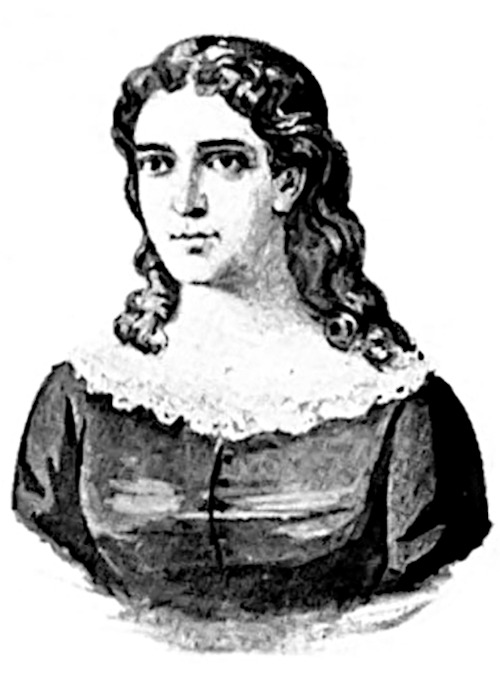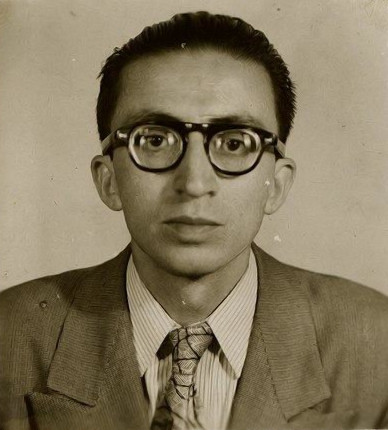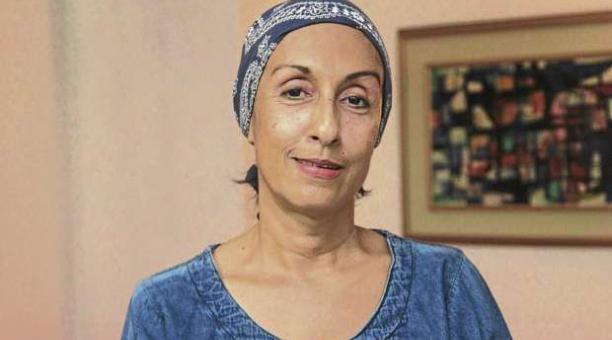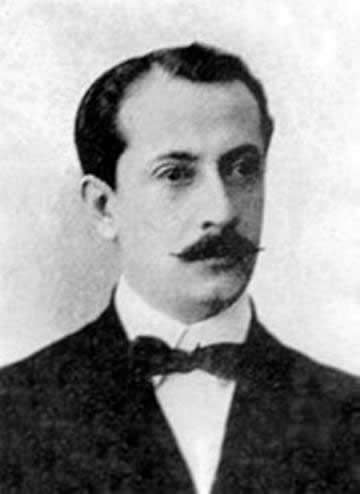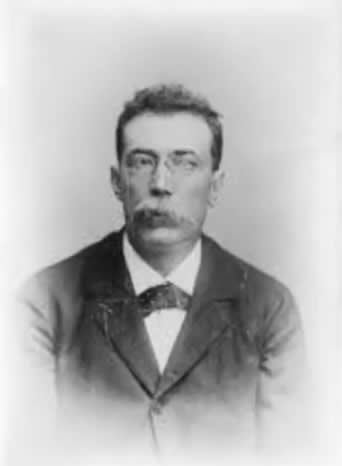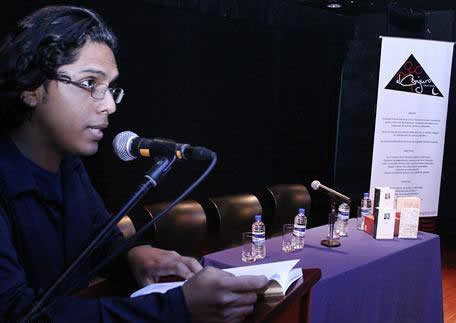Aleyda Quevedo Rojas (Quito, 1972) is an Ecuadorian poet and journalist. She is regarded as an important voice in contemporary Latin American poetry. Among her best-known works are the poems “Algunas rosas verdes” (1996), for which she won that year’s Jorge Carrera Andrade Award, and “Soy mi cuerpo” (2006), in which she uses the human figure as an escape from the fears and anguish provoked by death. The latter book and another one, “Jardín de dagas” (2013), were translated into French. In 2017, the House of Ecuadorian Culture published the book “Cierta manera de la luz sobre el cuerpo,” a compilation of her poems up to that point.
Continue reading “Aleyda Quevedo Rojas“Category: Poets
María Piedad Castillo de Levi
María Piedad Castillo de Levi (Guayaquil, July 6, 1888 – Quito, March 4, 1962) she was an Ecuadorian writer, poet, and journalist. She is also regarded as an important feminist who fought for women’s suffrage in Ecuador, for which she was targeted by the authorities. Castillo traveled to Paris to study in the Faculty of Philosophy and Letters at the Sorbonne. On her return to Ecuador, she began working for the publication El Telégrafo Literario. She wrote numerous poems, which appeared both in El Telégrafo and in various magazines. In June 1933, she funded the magazine Nuevos Horizontes with a group of fellow feminists. It served as the media organ of the Women’s Legion of Popular Education, an organization that worked to improve the rights of women workers. They also created a radio program, which the presidential candidate José María Velasco Ibarra appeared on in 1934. In 1935, Castillo was a candidate for minister of education, and El Telégrafo supported her candidacy. But women were still broadly excluded from Ecuadorian politics at the time, so she was denied the position. She served as the Ecuadorian delegate to the Inter-American Commission of Women for many years, beginning in 1940. She also joined the House of Ecuadorian Culture in Guayas and Pichincha beginning in 1946. Castillo traveled widely, spending long periods in the United States and even working as a foreign correspondent in Germany. She was a member of the National Press Club in Washington D.C. In recognition of her poetic work, the House of Ecuadorian Culture published her collection “Poemas de Ayer y de Hoy” in 1962.
Continue reading “María Piedad Castillo de Levi”María Clara Sharupi Jua
María Clara Sharupi Jua (Morona Santiago, 1964) is an Ecuadorian writer, poet, and translator, who writes in Spanish and Shuar, an indigenous language of Ecuador’s Amazon basin. She writes poetry in Shuar, while translating it into Spanish in order to reach a wider audience. She co-wrote the book “Amanece en nuestras vidas” (2011), the first anthology of poetry from Ecuadorian indigeneous women writers, and wrote the short story collection “Tarimiat” (2019), which was written in Shuar, Spanish, and English. Sharupi Jua also works as a translator and radio and television presenter in Shuar and Spanish. She was a member of the translation team that worked on the official Shuar translation of Ecuador’s Constitution. She lives in Quito, where she has also worked for the Ministry of Foreign Affairs and Migration on indigenous issues.
Continue reading “María Clara Sharupi Jua”Karina Galvez
Karina Galvez (Guayaquil, July 7, 1964) is an award-winning poet with Ecuadorian and American citizenship. She has lived in Orange County, California since 1985. In 1995, she published her book “Karina Gálvez – Poesía y Cantares”[Karina Galvez – Poetry and Songs], which includes both English and Spanish versions of her poems with a prologue written by León Roldós Aguilera, Ecuador’s former vice president. She is also a songwriter and author of children’s poems and short stories. Her Spanish poems have been translated into English, French, Italian, Portuguese, Romanian, Bulgarian, Slovene, and Czech.
Continue reading “Karina Galvez”María Fernanda Espinosa
María Fernanda Espinosa Garcés (b. September 7, 1964, Salamanca, Spain) is an Ecuadorian politician, diplomat, writer, and poet affiliated with the political party PAIS Alliance. She holds the distinction of being the first woman to serve as Ecuador’s minister of national defense, the first woman to be appointed as Ecuador’s permanent representative to the United Nations in New York, and the first Latina woman to be elected as president of the UN General Assembly. Prior to her political and diplomatic career, she was an Associate Professor and Researcher at the Latin American Faculty of Social Sciences (FLACSO). Ms. Espinosa Garcés is also a prolific writer and poet, having published over 30 academic articles on various topics such as the Amazon River, culture, heritage, climate change, and foreign policy, among others. She has authored five volumes of poetry and was awarded the Ecuadorian National Poetry Prize in 1990.
Continue reading “María Fernanda Espinosa”Luz Elisa Borja Martínez
Luz Elisa Borja Martínez (Riobamba, May 15, 1903 – Riobamba, July 10, 1927) was an Ecuadorian poet, pianist, painter, and sculptor. In only 24 years of life, she amassed an extensive body of written work, which her brother Luis Alberto published after her death in two books titled “Cofre Romántico” and “La Bella Durmiente.” The second book contains the poem “Quiero Llorar” (I Mourn), which she wrote in 1918, at the age of 15, after the death of the mother superior of the Riobamba Sisters of Charity. It has seven stanzas, two of which became the lyrics for the Ecuadorian pasillo called “Lamparilla.” The music was composed by Miguel Ángel Casares Viteri, who was inspired by Borja’s poem and his dismay over the damage caused by a Chanchán River flood. Some of her original works can be found at the House of Ecuadorian Culture in Chimborazo.
Continue reading “Luz Elisa Borja Martínez”Rosa Amelia Alvarado
Rosa Amelia Alvarado Roca (1944, Guayaquil) is an Ecuadorian writer and poet. In 1964 she founded the Guayaquil-based magazine Hogar, which became the biggest women’s magazine line in Ecuador. From 1967 to 1972, she worked in television as the director of programming at Channel 2 in Guayaquil, specializing in the creation of cultural programs. She is the president of the Guayas branch of the House of Ecuadorian Culture, and is a member of the Ecuadorian Academy of Language. Her most notable poems include: “Añoranza,” “Cosas Absurdas,” “De lo profano (II),” “El sermón de la montaña” and “La vida va y viene.”
Continue reading “Rosa Amelia Alvarado”José Joaquín de Olmedo
José Joaquín de Olmedo y Maruri (Guayaquil, March 20, 1780 – Guayaquil, February 19, 1847) was a notable Ecuadorian poet, first mayor of Guayaquil, and former president of Ecuador. In his poetry, Olmedo emphasized patriotic themes. His best-known work is La victoria de Junín: Canto a Bolívar (1825; “The Victory at Junín: Song to Bolívar”), which commemorates the decisive battle won there by the forces of the liberator Simón Bolívar against the Spanish armies. It is considered by many critics the finest example of heroic poetry written in Spanish America.
Continue reading “José Joaquín de Olmedo”Dolores Veintimilla
Dolores Veintimilla de Galindo (Quito, 1829 – Cuenca, May 23, 1857) was an Ecuadorian poet. Veintemilla left few works, which were published posthumously in a collection entitled, “Producciones literarias,” by Celiano Monge in Quito. Her best known poem is “Quejas” (Laments). Her literary style is characterized by rhythmic and musical verse, and she hardly made use of metaphors or imagery in her poetry. She committed suicide on May 23, 1857 in Cuenca.
Continue reading “Dolores Veintimilla”César Dávila Andrade
César Dávila Andrade (Cuenca, Ecuador, October 5, 1918 – Caracas, Venezuela, May 2, 1967) was an Ecuadorian poet, writer and essayist, usually acclaimed as an outstanding member of the 1940 Madrugada Group. His interest in the strange and marvelous earned him the sobriquet,“el Fakir.” He is best known for his poetry, although he also wrote short novels, stories, essays and numerous newspaper articles. His works displayed elements of Neo-romanticism and surrealism. His best known poem, “Boletín y elegía de las mitas,” originally published in 1959, marked a milestone in Ecuadorian and Latin American literature. He spent much of his life in Caracas, Venezuela where he worked in the editorial staff of Zona Franca. For several years he served as cultural attaché at the Ecuadorian embassy. Death and transfiguration was a theme in his poems. In 1967, he committed suicide at the age of 48.
Continue reading “César Dávila Andrade”Carmen Váscones
Carmen Váscones is an Ecuadorian writer, poet, literary critic, columnist, essayist and a clinical psychologist. She was born in Samborondón in 1958. She earned a degree in Psychology in 1983 and in Clinical Psychologist in 1984. She won the Cesar Dávila Andrade Poetry Biennial Prize (Cuenca, 1993) for Memorial aun acantilado, top Mention at the Ismael Pérez Pazmiño Poetry Contest (El Universo, Guayaquil, 1996) for Aguaje. In 1998 she received an award from the Ministry of Education and Culture of Ecuador, in 2001 she received an award from the National Congress of Ecuador for “her practice of teaching and the cultivation of beautiful letters,” and in 2002 she received the Cultural Educational Merit (Ministry of Education and Culture of Ecuador). As a psychologist, Váscones works with abused children and their mothers. Her book ULTRAJE / OUTRAGE was translated into English by Alexis Levitin in 2018.
Continue reading “Carmen Váscones”Rafael Pino Roca
Rafael Pino Roca (Guayaquil, October 24, 1878 – 1963) was an Ecuadorian poet and playwright. From 1908-1911 he was appointed Captain of the Port of Guayaquil by General Eloy Alfaro. In 1915 his play La Pólvora, which was co-written with his friend César Borja Lavayen, was brought to the stage in the Olmedo Theater of Guayaquil. In 1916 he was named Minister of War, Navy and Aviation in the government of President Alfredo Baquerizo Moreno. In 1931 he was named Ecuador’s Consul General in Bremen and Prague, and in 1935 he was put in charge of trade with Berlin. Pino’s most praised work is Canto a la Raza (1934), about the discovery and conquest of the Americas.
Continue reading “Rafael Pino Roca”Juan Benigno Vela
Juan Benigno Vela Hervas (Ambato, July 9, 1843 – Ambato, February 24, 1920) was an Ecuadorian politician, lawyer, journalist, educator, writer and poet. He earned his law degree from the Central University of Ecuador. Since the age of 33 he was completely blind. He founded the newspapers El Combate, La Idea, La Candela, El Argos and El Pelayo. He was an opponent of the conservative governments of Presidents Gabriel García Moreno and General Ignacio de Veintemilla. For his beliefs he was several times persecuted, imprisoned or exiled. From 1912-1919 he was a senator during the governments of Presidents Leónidas Plaza (1901-1905, 1912-1916) and Alfredo Baquerizo Moreno (1916-1920). He is remembered as a consistent advocate for human rights and freedom in Ecuador.
Continue reading “Juan Benigno Vela”Andrés Villalba
Andrés Villalba Becdach is a writer and poet. He was born in Quito in 1981. He studied Social Communication in Quito, journalism in Los Angeles and Latin American literature at Sapienza University of Rome. His books include: Cuaderno Zero (2010), Luigi Stornaiolo: el arte de la digresión (honorable mention in the José Peralta National Journalism Prize, 2010), Obscenidad del vencido (2010), Menos que cero (2011), Muñones (2011), De los acorralados es el reino (2014), Soterramiento (2014), No mueras joven, todavía queda a gente a quien decepcionar (winner of the Jorge Carrera Andrade National Poetry Prize, 2015), Una natural tendencia a la desintegración (fragment, 2017; complete edition, 2018). He also put together the anthology of Ecuadorian poetry Caballo sea la noche.
Continue reading “Andrés Villalba”César Eduardo Galarza
César Eduardo Galarza (Guayaquil, 1981) is an Ecuadorian poet. From 1999-2007, he was a part of the literary workshop of Miguel Donoso Pareja. He published Polvo fue su piel (2000). He also co-authored Mensaje en una botella (2002) and Madera muerta (2008). In 2008, Galarza received honorable mention in the Ileana Espinel Poetry Contest.
Continue reading “César Eduardo Galarza”
